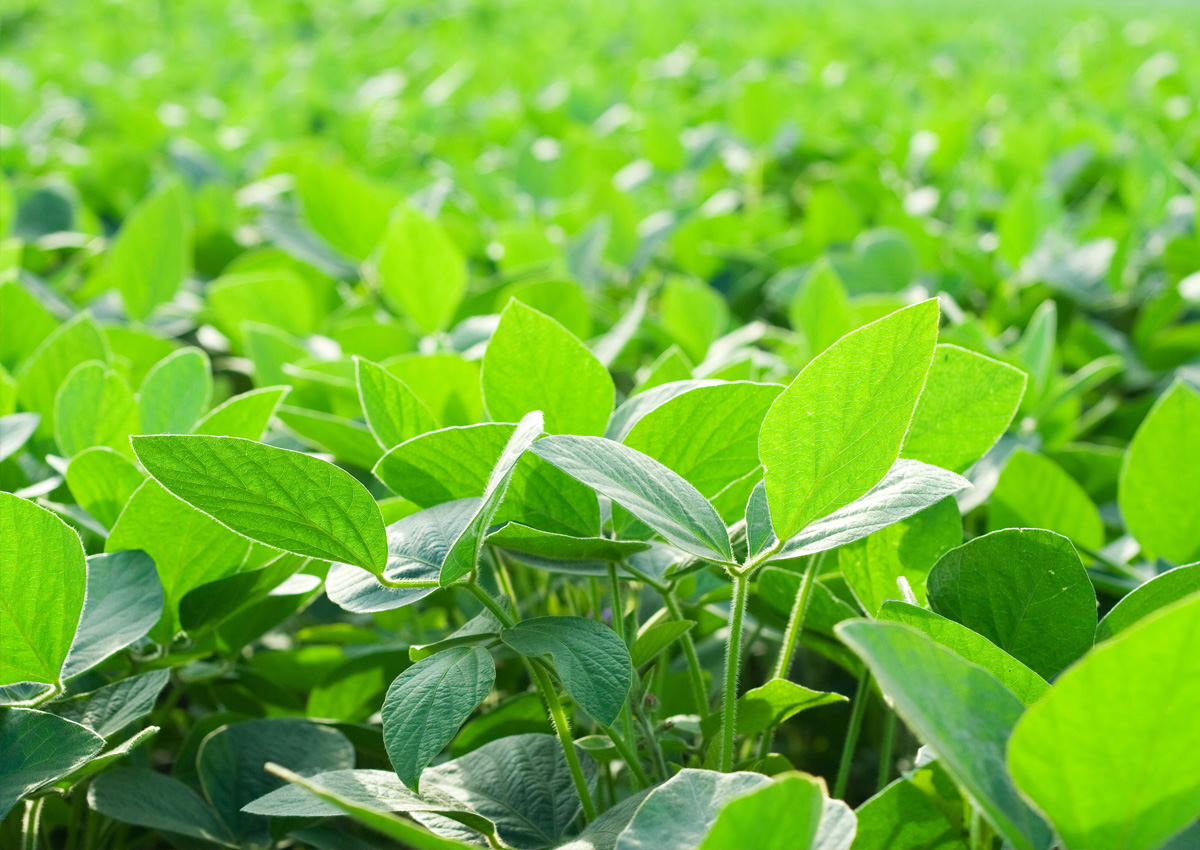
Biotechnology to Improve Hybrid Breeding of Soybeans
August 30, 2023| |
New research conducted by scientists at the Donald Danforth Plant Science Center and Cornell University successfully produced fertile hybrid offspring in soybeans using a biotechnology approach. The study published in the Plant Biotechnology Journal revealed that obligate outcrossing with the Barnase/Barstar lines can amplify hybrid seed sets and enable large-scale trials for heterosis in soybeans.
Soybean is 99 percent self-pollinated, which prevents gains from hybridizing. For over a century, hybrid breeding for increased vigor has been used to boost agricultural outputs without the need for higher inputs. This approach has led to substantial gains in crop productivity, but some barriers have limited soybean improvement through hybrid vigor. Soybean flowers self-fertilize before opening and thus are not readily amenable to outcrossing. This is in part due to the limitations of current approaches, which have failed to produce reliable obligate outcrossing in soybeans.
The research team showed that the Barnase/Barstar male-sterility/male-rescue system can be used in soybeans to produce hybrid seeds. By expressing the cytotoxic ribonuclease, Barnase, under a tapetum-specific promoter in soybean anthers, they were able to completely block pollen maturation and create male-sterile plants. They also showed that fertility can be rescued in the F1 generation of these Barnase-expressing lines when they are crossed with pollen from plants that express the Barnase inhibitor, Barstar.
“Improved soybean is a long-term goal of farmers, plant breeders, and scientists,” says Dr. Blake Meyers, Danforth Center principal investigator and professor of plant science at the University of Missouri. He added that improvements could have a potentially substantial effect—and offer a benefit to beleaguered pollinators as well.
For more details, read the article on the Donald Danforth Plant Science Center website.
| |
You might also like:
- Scientists Assess Impact of Beta-carotene-enriched Soybeans on Soil Microorganisms
- 15-year Data Show GM Rapeseed, Soybean Do Not Affect Biodiversity in Japan
- Biotech Crop Annual Updates: Soybeans
Biotech Updates is a weekly newsletter of ISAAA, a not-for-profit organization. It is distributed for free to over 22,000 subscribers worldwide to inform them about the key developments in biosciences, especially in biotechnology. Your support will help us in our mission to feed the world with knowledge. You can help by donating as little as $10.
-
See more articles:
-
Plant
- Biotechnology to Improve Hybrid Breeding of Soybeans
- Bangladesh Starts Planting Bt Cotton
- Super Pangenome of Potato Could Lead to the Next Super Potato
- ISAAA Inc. to Hold ASCA6 on September 11-15 in Indonesia
-
Animal
- Experts Release Updates on TALEN Construction Systems
- Pinoy Biotek Seminar: Mudfish Spawning Technology
-
Food
- Pilot Planting of GE Maize and Soybeans Reaches More Regions in China
-
Health
- Gene Editing Restores Dystrophin Function in Stem Cells From Patients With Severe Muscle Disorder
-
Environment
- Simultaneous Inhibition of Molecules Can Help Boost Precision and Efficiency of CRISPR
- Global Marine Biotechnology Market Forecasted to Grow by 2027
-
Read the latest: - Biotech Updates (January 28, 2026)
- Gene Editing Supplement (January 28, 2026)
- Gene Drive Supplement (February 22, 2023)
-
Subscribe to BU: - Share
- Tweet

